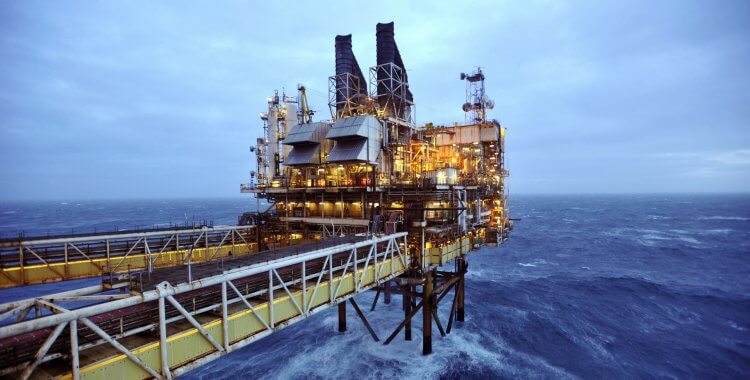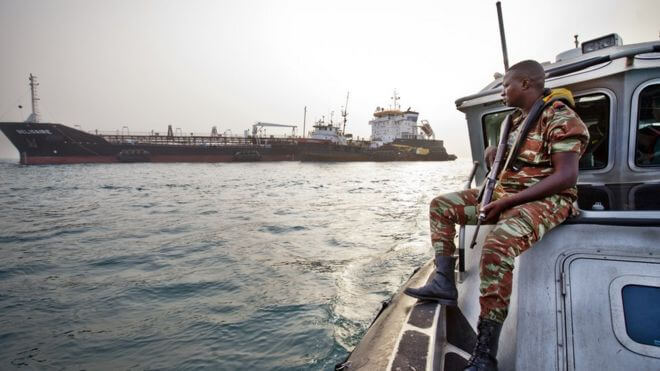
The Organization of Petroleum Exporting Countries (OPEC) Monthly Oil Market Report for May 2022 showed that Angola’s oil production is now higher than that of Nigeria.
With output measuring 1.16 million barrels per day (bpd) in May, and following production declines in Nigeria, Angola now represents the continent’s biggest producer, despite showing declines itself.
In May 2022, OPEC’s total production was estimated at 28.51 million bpd, with Saudi Arabia, the United Arab Emirates and Kuwait showing increases while Libya, Nigeria, Iraq and Gabon showed a reduction. In Angola, despite declines from 1.18 million bpd to 1.16 million bpd from April to May 2022, the country’s production is now the highest on the continent.
With exploration expected to increase following the National Agency of Petroleum, Gas and Biofuel’s opening proposals for the latest bid licensing round for offshore blocks in the Lower Congo and Kwanza Basins in April 2022, oil production in Angola is expected to see an increase, further reaffirming the country’s newfound position.
Up until May, Nigeria stood as the biggest producer with output estimated at 1.22 million bpd. However, due to production declines in legacy oilfields and delayed exploration attributed to post-COVID-19 and energy transition capital expenditure trends, the country witnessed production cuts by 195,000 bpd to 1.02 million bpd from April to May 2022.
Read Also: Investment Totalling $11.8trillion Required in African Oil Sector – OPEC
This reduction represents the biggest output decline out of all OPEC member states. As exploration ramps up across the continent, however, and new fields come online, the competition for the top spot is expected to become even more fierce.
Other big oil producers in Africa
ALGERIA: 970,000 bpd
Representing the third-largest oil producer in 2022, Algeria is committed to increasing production beyond pre-pandemic levels of 1.3 million bpd. For 2022, production sits at 970,000 bpd — an improvement from 2021 levels of 874,000 bpd. With upwards of 12 billion barrels of proven oil reserves — the second largest on the continent —the north African country is committed to maximizing reserves through the scaling up of exploration and investment.
LIBYA: 946,000 bpd
Despite having the largest oil reserves on the continent at 46.4 billion barrels, political instability and lack of oilfield maintenance has seen production decline rapidly in Libya. In 2021, the country produced approximately 1.17 million barrels per day, however, output has fallen with the deteriorating political situation. Production is particularly sensitive for 2022, due to regular infrastructure and export blockades. There is a positive expectation for production levels to accelerate, once political stability is restored.
EGYPT: 556,440 bpd
Egypt takes the fifth largest oil producer in Africa spot with production estimated at 556,440 bpd in 2022. As demand increases from European markets, the country is looking at improving exploration, with specific emphasis having been placed on drilling new wells. Between 2014 and 2020, the country signed 84 petroleum agreements with international operators, and is looking at increasing exploration even further in 2022.
REPUBLIC OF THE CONGO: 275,000 bpd
The Congo expects production to increase steadily as new fields are brought online. Following the development of the country’s first deepwater field, Moho-Bilondo, Congo has welcomed increased production and renewed interest in producing fields. In addition, Zenith Energy secured a 25-year license to continue operating the Tilapia oilfield in 2021, and as exploration ramps up country-wide, production outlook is positive.
GABON: 195,000 bpd
Following its peak of 370,000 bpd in 1997, Gabon’s oil production has decreased with 2022 levels showing daily output at 195,000 bpd. Largely attributed to ageing oilfields and lack of investment, the country is now committed to expanding exploration and increasing production. Through revisions made to the Hydrocarbon Code in 2019, which have improved flexibility to the regulatory framework, Gabon aims to attract investment and development.
GHANA: 172,000 bpd
With over 660 million barrels of proven oil reserves, Ghana is the eighth biggest oil producer in Africa. The Jubilee and Tweneboa Enyenra Ntomme (TEN) oilfields represent the largest contributors to production, and with rising investment in offshore basins, coupled with new developments such as the Aker-operated deepwater Tano Cape Three Points coming online, production is expected to increase by up to 420,000 bpd in 2023.
Read Also: Mohammad Barkindo, OPEC Secretary-General, Dies at 63
EQUATORIAL GUINEA: 88,000 bpd
Equatorial Guinea’s production sits at 88,000 bpd for 2022 – a significant downturn from 2021 levels of 153,000 bpd. To address this decrease, the Ministry of Mines and Hydrocarbons is focused on improving exploration and kickstarting production across key basins.
In this regard, Trident Energy and partners for Block G have had their production sharing contract extended, maintenance works at the Zafiro, Jade and Serpentina facilities are underway and new exploration campaigns are taking off.
CHAD: 68,000 bpd
Despite estimated reserves of one billion barrels of oil, production in Chad has been slow, with 2022 levels estimated at 68,000 bpd — a significant decline from 2021 levels of 109,000 bpd. The majority of Chad’s crude is derived from the Doba Basin, with major operators including ExxonMobil and Shell continuing to drive progress.
Source: Energy Capital & Power | OPEC
Abeeb Lekan Sodiq is a Managing Editor & Writer at theafricandream.net. He is as well a Graphics Designer and also known as Arakunrin Lekan.





